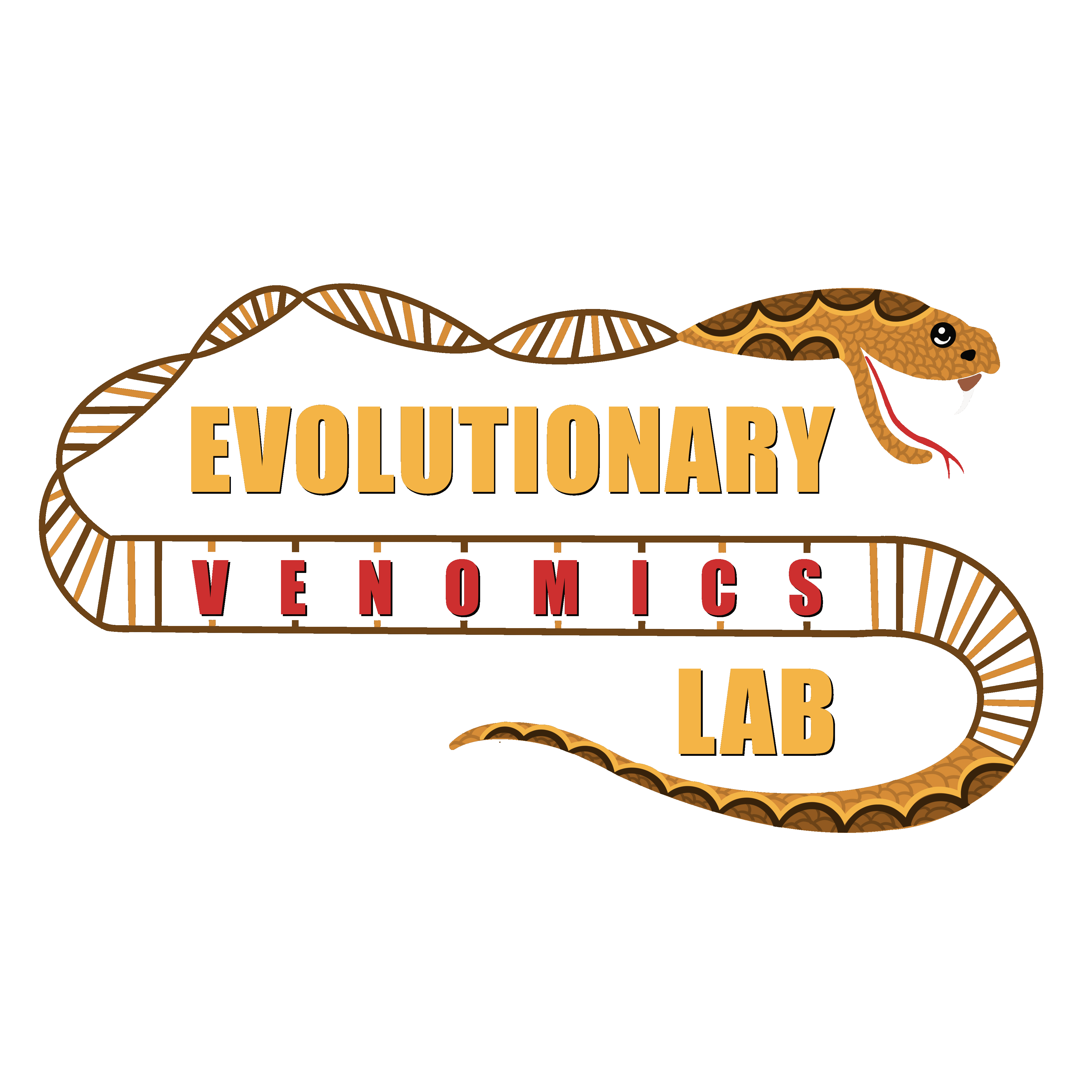
KARTIK SUNAGAR
INDIAN INSTITUTE OF SCIENCE
Opportunities
Check this page for open positions.
We study venomous animals and their venoms as model systems to address broad and interesting questions in evolutionary biology and genetics. Venom, amongst nature's most complex biochemical cocktails, has underpinned the evolutionary success of several animal lineages. Venom has independently evolved on at least 30 times in animals and is employed to disrupt the physiological and biochemical processes of predators or prey to facilitate the defence or feeding of the venomous animal. Many venom proteins in unrelated (or distantly related) animals have remarkably acquired the ability to target identical molecular receptors. Thus, venom is an excellent system to understand the mechanisms underlying the origin of novel protein functions, the evolution of rapidly evolving proteins with adaptive functions, interspecific and intraspecific competitions, predator-prey co-evolutionary arms races, and the dynamic nature of natural selection.
In the past, our research has unravelled several fascinating aspects of animal venoms, including...
-
the ‘two-speed’ mode of venom evolution in animals (Sunagar and Moran, 2015)
-
the mechanisms underpinning the origin and diversification of venoms across large evolutionary time (Sunagar, 2013)
-
the highly predictable and parallel molecular evolution of resistance to poisons across the animal kingdom (Ujvari et al 2015)
-
differential selection pressures on toxin domains underpinning neofunctionalization (Brust et al. 2013)
-
the biology, evolutionary origin and the genetic basis of development of cnidocytes - the first venom-injecting cells in animals (Sunagar et al. 2018)
-
spatiotemporal variability in venoms (eLife 2018)
-
geographical variability in venoms and its impact on antivenom efficiency (Sunagar et al. 2014; Laxme et al. 2019);
-
the origin and evolution of venom and venom delivery systems in basal reptiles (Fry 2013).
See the full list of publications for details.
The major themes of research in the lab include...
-
Venomics: unravelling venom compositions, potencies, and bioactivities using advance 'omics' technologies, and the underlying ecological and environmental factors influencing them.
-
Antivenomics: developing cost-effective and efficient next-generation snakebite therapies to save the lives of India's two hundred thousand annual snakebite victims.
-
Molecular evolution of venom: understanding the evolutionary dynamics of venom across time and the forces of natural selection that shape animal venoms.
-
Genomics of venomous animals: understanding the genomic basis of adaptations in venomous animals.
-
Phylogenetics, population genetics, and phylogeography of venomous animals
Positions and Funding
You can apply for any of the following positions here.
Interns and Dissertation students
If you are interested in pursuing an internship or dissertation project in the lab, then it is mandatory for you to fill the above-mentioned form. You will NOT receive a response if you email directly.
Project assistants
If you are interested in applying for a position of project assistant, fill the above-mentioned form.
Prospective PhD students
Based on the interview performance and the documents submitted in the application package, PhD candidates are recruited by CES once a year (May/June). To appear for the interview, the candidate should have qualified for one of the following national-level entrance exams: UGC/CSIR-NET, GATE ecology, GATE life science, GATE biotechnology or any equivalent national-level exam. The department sets the cut-off for the interview and will conduct two rounds of interviews of students who have made the cut-off. Additional details can be found here.
If you are interested in pursuing a PhD in the lab, you are advised to fill the above-mentioned form well in advance before the interviews, and discuss the scope and ideas for the PhD thesis.
Postdoctoral researchers
Prospective candidates seeking postdoctoral opportunities in the lab should fill in the above-mentioned form. If there are no fully funded positions in the lab, applicants seeking postdoctoral positions could develop proposals with the PI to compete for the prestigious postdoctoral fellowship opportunities, including Raman Postdoctoral Fellowship by IISc, Wellcome Trust/India Alliance DBT Early Career Fellowship, and other fellowships from DBT, DST and SERB.